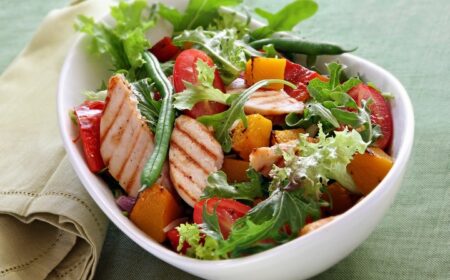Dogs, much like humans, thrive on balanced nutrition. It goes beyond mere sustenance; it’s about providing the right mix of proteins, carbohydrates, and fats to keep them healthy and energetic. Many pet owners may wonder if they can replicate the variety and nutrition seen in human diets for their furry friends. The good news? You absolutely can, and it can be gratifying too!
Here are some balanced meal ideas for your dog.
Proteins Galore
Proteins form the backbone of a dog’s diet, contributing to muscle development, energy, and overall health. Ideal protein sources include lean meats, eggs, and fish. Chicken and turkey are everyday favourites among dogs, and they are easily digestible and packed with essential amino acids. A simple meal might include boiled chicken mixed with brown rice and steamed vegetables like carrots or peas. Another option could be scrambled eggs combined with spinach, a nutritious, vibrant, and oh-so-delicious meal!
Fish offers omega-3 fatty acids, which promote a shiny coat and healthy skin. Salmon and sardines can be great additions to your dog’s diet. Grilled fish served alongside sweet potatoes provides a tasty, hearty meal. It’s all about finding the right balance and variety to keep your pup excited about mealtime!
Delicious Dog Treats
Treats serve multiple purposes in a dog’s life—not just as rewards but also as a delightful addition to their daily routine. High-quality dog treats can be an excellent source of vitamins and minerals, making them a fun and nourishing option. Consider making homemade treats using wholesome ingredients. For example, peanut butter can be paired with oatmeal for easy-to-make biscuits.
When baked and cut into bite-sized pieces, fruits like pumpkins or sweet potatoes can become delightful snacks. These choices provide a tasty experience and support your dog’s nutrition. Offering treats during training or just because allows you to bond and reinforce positive behaviour. Dogs thrive on routine and love the extra attention you give them during these moments.
Wholesome Carbohydrates
Carbohydrates are crucial for providing energy. Whole grains like brown rice, oats, and quinoa are excellent options. Giving your dog carbohydrates not only offers energy but also adds dietary fibre, promoting digestion. For example, mix cooked quinoa with diced chicken and chopped vegetables for a nutrient-packed dish.
Fruits and vegetables should also feature in your dog’s meals. Apples (without seeds), blueberries, and bananas make tasty snacks or can be mixed into meals. Steamed carrots and green beans add both flavour and nutrition. It’s amazing how creativity can create variety while keeping those meals balanced!
Healthy Fats
Fats are vital for a dog’s overall health, aiding in nutrient absorption and providing energy. Incorporating a small amount of healthy fats, such as fish or flaxseed, can offer benefits like improved joint health. Unsaturated fats in ingredients like avocado can also contribute to a shiny coat and healthy skin.
When preparing meals, consider drizzling olive oil over your dog’s food or mixing in a teaspoon of flaxseed oil. These small additions enhance the nutritional profile of any dish while keeping it appetizing.
Variety is Key
Just as humans need to have a varied diet, dogs also benefit from culinary diversity. A mix of proteins, vegetables, and grains ensures they receive all the necessary nutrients. Rotating meals prevents boredom and helps identify your dog’s food sensitivities.
You should introduce new ingredients week by week. One week could be chicken and quinoa, while the next introduces beef and sweet potato. This variety keeps meals fun and expands your pup’s palate. If your dog favours certain fruits or veggies, incorporate them into meals.
Portion Control
Understanding portion sizes is vital to ensuring your dog stays healthy. Too much food can lead to obesity, while too little may not provide adequate nutrition. When measuring out meals, it’s essential to factor in your dog’s age, size, and activity level. Consulting with your veterinarian can offer tailored guidance for your dog’s nutritional needs.
Using measuring cups or kitchen scales allows for precision, which is particularly helpful when trying new recipes. While it might feel tedious initially, this careful approach pays off in maintaining your dog’s health and happiness.
Mealtime Magic
Creating balanced meals for your dog doesn’t need to be complicated. It’s about using wholesome ingredients and a little creativity in the kitchen. The joy you’ll see when your dog enjoys a meal made just for them is incomparable.









